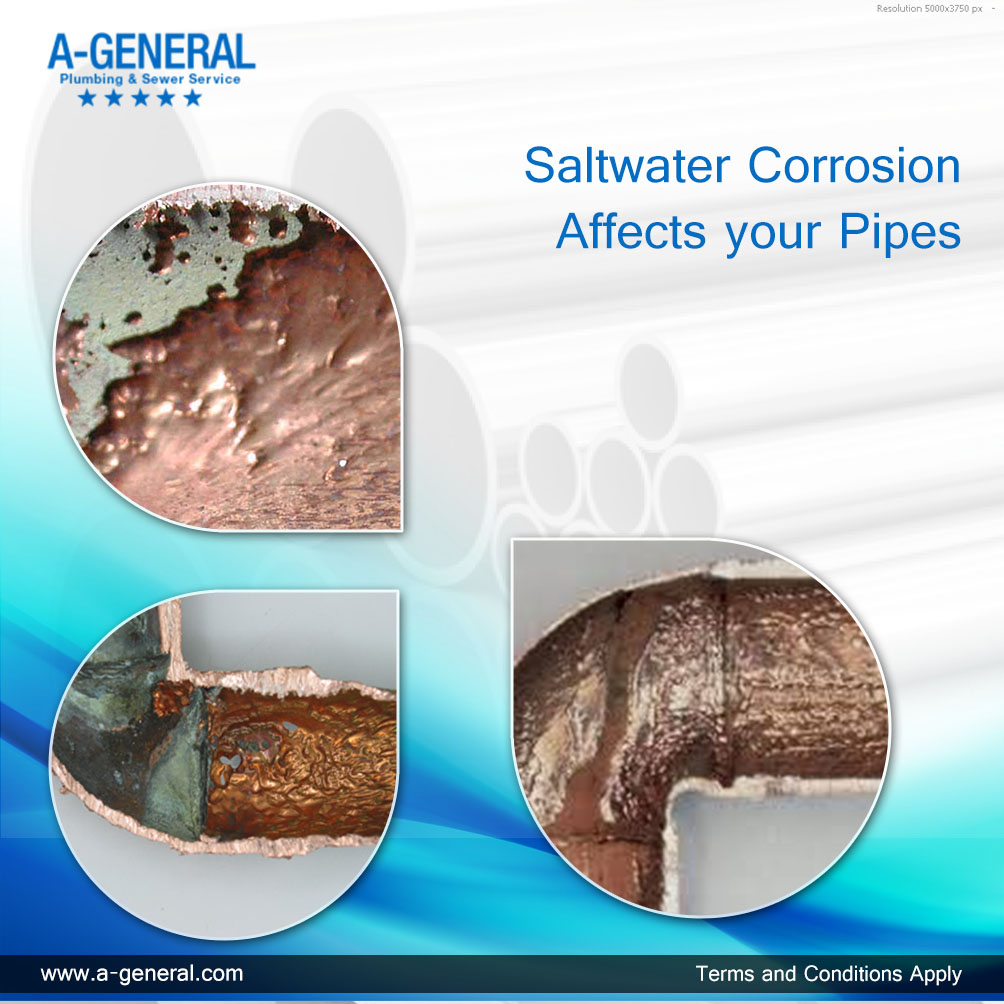If you stay somewhere near the ocean, remember that more than the boats saltwater affects the homes on these coastal areas. Saline water, flooding, and other causes of saltwater exposure can leave your home and commercial plumbing in a corrosive environment. If you are that lucky person to have a home near the coast, check the exposed pipeline and plumbing fixtures routinely for saltwater corrosion and while repairing invest in corrosion resistant materials. And remember that whenever you are in doubt of repairing or replacing any plumbing fixture, call a professional plumber near you to look at your pipes for corrosion or any other damages.
Here are some points to remember regarding saltwater corrosion:
Pipes and Corrosion
Copper is one of the least resistant metal to salt-related corrosion and as time passes due to wear and tear, copper pipes will turn bluish-green with saltwater exposure and eventually crumble away. Whereas, galvanized steel and cast iron are more handy and resistant to saltwater corrosion, but long time exposure can still cause minor damage. This is one major reason why plastic pipes are now much favored than copper or steel as it is one of the most resistant materials, to saltwater corrosion.
When you purchase a home or renovating your old construction, identify plumbing defects as early as possible, so that you have time in hand to look in the event of saltwater exposure or unidentified pipe leaks.
What are the signs of Corrosion?
One of the main signs of pipe corrosion is when brown or red tinged water starts to come out of your plumbing fixtures and faucets. Keep in mind that exposed copper piping that starts to turn blue-green, may indicate a need to evaluate your water system. Always have your plumbing system inspected by a professional plumber in your immediate vicinity as they have the knowledge and expertise that is needed to repair or replace a corroded pipeline.
So, How will you rectify if your plumbing system has been exposed to Saltwater Corrosion?
First thing that you need to when your plumbing system is exposed to saltwater corrosion is to remove the saltwater from the pipes, as the whole system needs to be flushed, and then pumped from the inside. Clean exposed pipe is a must on the outside. Keep in mind that without proper flushing, salt can remain in your plumbing system and slowly eat away the metal.
Also, perform a timely check of your plumbing system, and check all the appliances after saltwater exposure. Some of the appliances and piping may need to be replaced entirely, particularly if you are working in post-flood conditions. Saltwater is conducive to electricity than freshwater, so seek help from a trained plumber if you are concerned about a potential electric shock.

